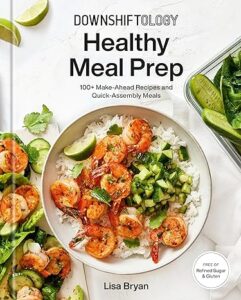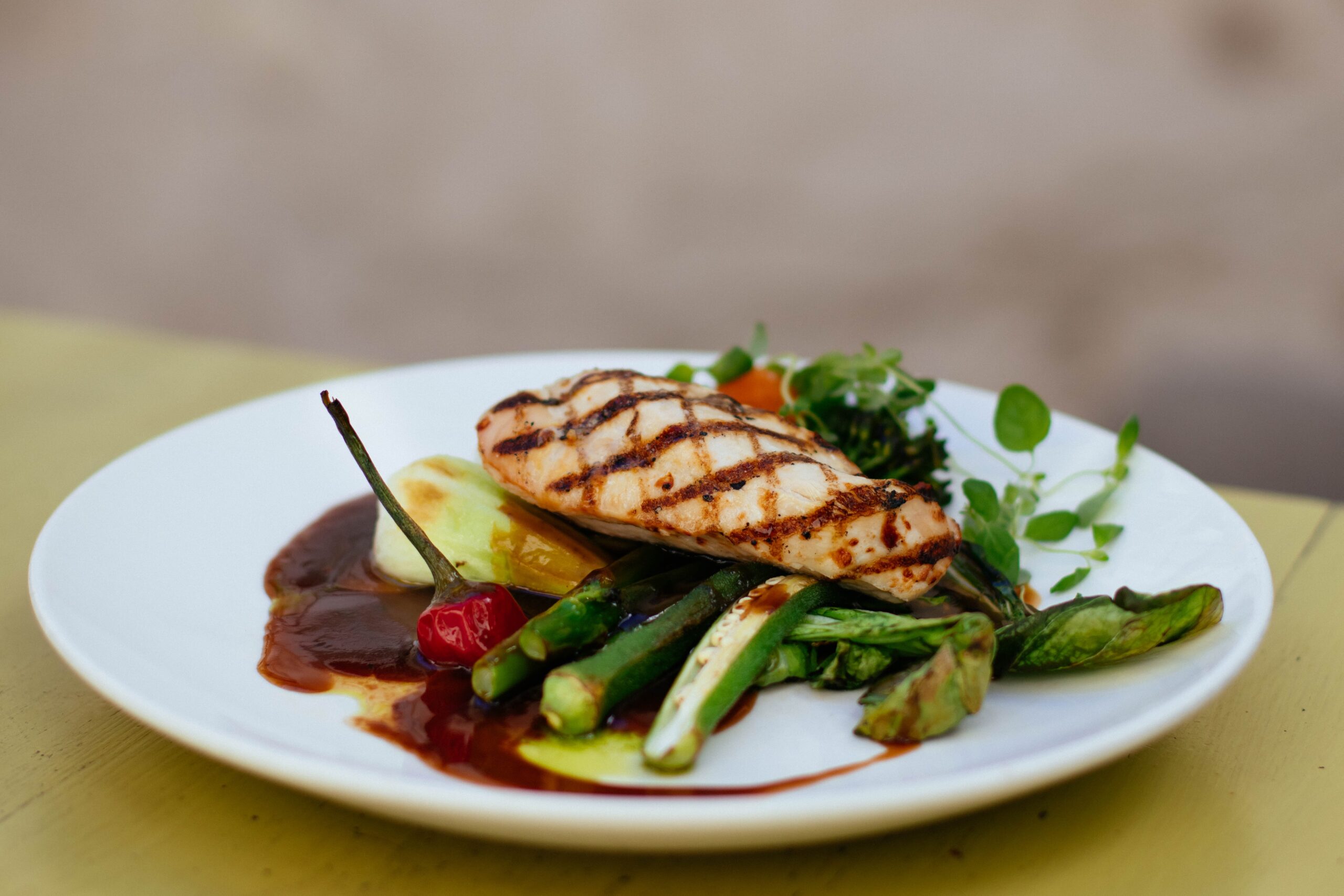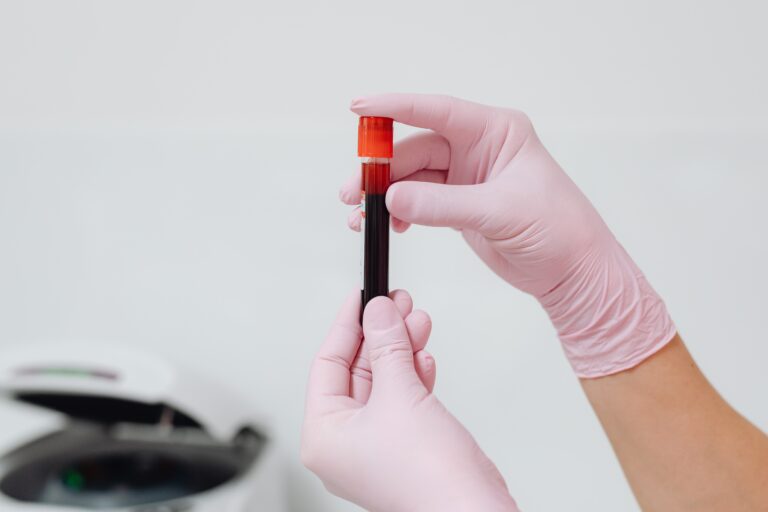Nutrition
Nutrition and Exercise
The dietary needs of athletes and other active individuals are, with a few small adjustments, not very different from those recommended for all healthy people.
 Downshiftology Healthy Meal Prep |
Active individuals expend more energy than sedentary people, so they do need to consume more calories; the exact number depends on age, body size and composition, activity, and level of training. The chart below tells what percentage of daily calories should come from carbohydrates, protein, and fat.
A diet deficient in essential nutrients can make you feel weak, slow you down, and make you perform below par. But there’s no evidence that exceeding the RDA’s by taking supplements will improve performance under normal circumstances. In some cases large doses of supplements can prove detrimental.
| Nutrient | Importance for Exercise | Recommendations | Comments |
| Carbohydrates | The most efficient fuel for the body. | Should supply 55 to 60% of daily calories for most people, 60 to 70% for endurance athletes. No more than 15% of total calories should come from simple carbohydrates (sugars), the rest from complex carbohydrates. | Can’t be stored in large amounts. By eating more complex carbohydrates, you may increase energy reserves (glycogen) in muscles and liver, thus prolonging time before exhaustion. |
| Protein |
Needed to build, maintain, and repair tissue. | Protein needs of sedentary and most active people are about the same. The adult RDA is easily met when 12% of calories come from protein. Protein supplements are unnecessary and expensive. | The average American gets more than enough protein. Excess protein won’t build muscles – only exercises does. Extra protein is stored as fat. |
| Fats | The most concentrated and abundant form of energy in the body, fat stores serve as the primary fuel during prolonged aerobic exercise. | For all people, less than 30% of daily calories should come from fat, and less than 10% from saturated fat. Besides being a health risk, a high-fat diet may impair performance. Avoid fatty foods before exercise, since they can take three to four hours to digest. | Don’t confuse body fat and excess dietary fat; body fat is the stored form of dietary protein, carbohydrates, and fats. Even lean people have more than enough fat stores for energy production. |
| Vitamins | Needed for the metabolism of carbohydrates, protein, and fats. | Active people generally don’t require supplementary vitamins. If their increased caloric intake comes from a varied, balanced diet that is high in complex carbohydrates, it should provide all the vitamins they need. | Contrary to popular opinion, vitamins don’t build muscles or provide energy. There’s no evidence that large doses of any vitamin will improve performance. |
| Minerals | Needed for the metabolism of carbohydrates, protein, and fats. Iron is vital for oxygen transport. Sodium and potassium help maintain the body’s water balance. | A varied diet generally provides enough minerals for active people, with the possible exception of iron. All adult women should consume at least 1,000 milligrams of calcium daily, preferably from foods rather than supplements. | Losses of sodium through perspiration are actually quite small and can usually be replenished by a normal diet. Salt tablets are rarely necessary. |
 Downshiftology Healthy Meal Prep |
 |
| Healthy Eating Twelve Steps to a Healthy Diet Nutrition and Exercise The Right Protein Beyond Hyped Diets Fruits and Vegetables |









Thank you for this great information. It will really help my family maintain our healthy diet.